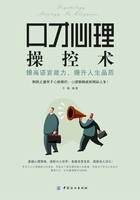Now let us see what evidence we possess as to the character of early Slavonic family law. We shall first give our authorities, and then proceed to draw our general conclusions.
The earliest evidence which we possess as to the social relations of the Eastern Slavs, whose confederacy was the beginning of the Russian State, is contained in the so-called Chronicle of Nestor. Nestor is supposed to have been a Russian monk of the eleventh century.
Contrasting the mode of life of the most civilised Slavonic nation, the Polians, who were established on the banks of the Dnieper, with that of the more barbarous tribes of Russia, Nestor, or perhaps it is better to say, the unknown author of the Chronicle which bears this name, states as follows (I translate literally): "Each tribe had its own customs, and the laws of its forefathers and its own traditions, each its own manner of life (nrav). The Polians had the customs of their fathers, customs mild and peaceful (tichi); they showed a kind of reserve (stidenie) towards the daughters of their sons and towards their sisters, towards their mothers and their parents, towards the mothers of their wives, and towards the brothers of their husbands; to all of the persons named they showed great reserve.
Amongst them the bridegroom did not go to seek his bride; she was taken to him in the evening, and the following morning they brought what was given for her.""Another Slavonic tribe, the Drevlians, according to the same chronicler, lived like beasts; they killed one another, they fed on things unclean; no marriage took place amongst them, but they captured young girls on the banks of rivers."The same author narrates that three other Slavonic tribes, the Radimich, the Viatich, and the Sever, had the same customs;they lived "in forests, like other wild animals, they ate everything unclean, and shameful things occurred amongst them between fathers and daughters-in-law. Marriages were unknown to them, but games were held in the outskirts of villages; they met at these games for dancing and every kind of diabolic amusement, and there they captured their wives, each man the one he had covenanted with. They had generally two or three wives."I have tried to give you the nearest possible translation of this old Russian text, the interpretation of which, however, gives rise to certain difficulties not yet quite settled. I will now classify, to the best of my power, the various facts which we can infer from this text. First of all, it establishes the fact that marriage in the sense of a constant union between husband and wife, was not a general institution among the Eastern Slavs.
With the exception of the more civilised Polians, no other tribe is stated to have any notion of it. Of course this does not mean that all alike were entirely ignorant of the meaning of family life. It only weans that their mode of constituting a family did not correspond to the idea which the author, who, as we have said, was a monk, entertained as to matrimonial relations. The Radimich, Viatich, and Sever captured their wives after having previously come to an agreement with them. This certainly is a method which cannot meet with the approval of a Christian, but nevertheless it is marriage. We have before us an example of what ethnologists have named "marriage by capture."The Drevlians were even less advanced as regards the intercourse between the sexes. They also had games at which women were captured; but not a word is said about any covenant entered into by the captor and his supposed victim. Neither is any mention made of these games being held on the boundaries or outskirts of villages, a fact which would point to the existence of a sort of exogamy forbidding unions between persons of the same gens. In the description which the chronicler gives of the Drevlians we have an instance of an almost unlimited licence, whilst in that of the Radimich, Viatich and Sever we find a picture of an exogamous people; contracting marriage by capture, and yet retaining from the period of almost unlimited licence a sort of family communism which appears in the relations between fathers and daughters-in-law.
No trace of this either limited or unlimited promiscuousness is to be found among the Polians, who according to our old Chronicler, "conducted themselves with much reserve" towards daughters-in-law, and sisters-in-law, towards mothers and fathers, towards fathers-in-law and brothers-in-law. They seem to have been an exogamous tribe like the Radimich, Viatich and Sever, their wives being brought to them from outside their own gens. Unlike the tribes just mentioned they did not, however, procure them by capture. It was not the custom for the bridegrooms to go in search of their wives; they received them from the hands of the parents of the women, and they then paid the sum of money previously agreed upon. This means that their mode of constituting marriage was by buying their wives. The words of the Chronicler concerning these payments is far from being clear, and Russian scholars have tried to interpret them in the sense of "dower" brought by the relatives of the wife. But it has been recently proved that no mention of "dower" is to be found in Russian charters before the fifteenth century, and that the word veno used in mediaeval Russian to designate the payment made on marriage, has no other meaning than that of pretium nuptiale, or payment made by the bridegroom to the family of the bride.(2*) The words of Tacitus concerning the dos paid amongst the German tribes by the future husband to his wife's father give precisely the meaning of the old Russian veno, and throw a light on the sort of payment which the chronicle of Nestor had in view, when speaking of the matrimonial customs of the Polians.















